

70.
The Smiths
“This Charming Man”
[Rough Trade; 1983]
“This Charming Man,” the second single from British alternative band The Smiths, showcases the band at their peak playing ability. Guitarist Johnny Marr starts it off with one of his most captivating riffs of all time, soon the rhythm section comes in to aid in Marr’s carrying of the track, followed by Morrissey’s crooning of tales of seduction, sexual confusion, and romance.
Whereas first Smiths single “Hand in Glove” failed to chart — probably due to it’s tone and production — “This Charming Man,” with it’s upbeat tempo and major key, hit 25 on the British singles chart and landed them a spot on Top of the Pops, where The Smiths, and specifically Morrissey, with gladioli in hand, would first make their mark on British pop culture. The rest is history.
– Evan Kaloudis
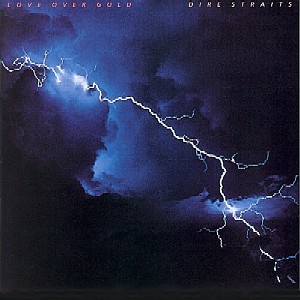
69.
Dire Straits
“Telegraph Road”
[Vertigo / Warner Bros.; 1982]
As guitar heroes go, Mark Knopfler is one of the least flashy in, well, ever. He impresses not with showy soloing or in-your-face riffs, but rather quietly, understatedly, and tastefully. Brothers in Arms is for many people synonymous with the arrival in the mid-1980s of the CD format, but this sprawling, epic track from that album’s predecessor, Love Over Gold, is Knopfler’s, and Dire Straits’, masterpiece. Clocking in at nearly 15 minutes, “Telegraph Road” showcases not only the group’s tight, blues-informed songwriting but also Knopfler’s six-string prowess.
– Sean Highkin
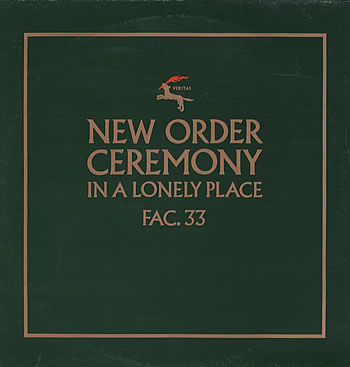
68.
New Order
“Ceremony”
[Factory; 1981]
“Ceremony,” as everyone knows, is really a Joy Division song. Written and performed by the band before Curtis’ suicide, some may see it as disrespectful for the remaining members to claim it as their own in the wake of the tragedy, but “Ceremony” is a song that needed to be heard. One can only imagine a studio-recorded version of the song with Curtis’ vocals, but Sumner does a perfectly fine job as replacement, even though his voice isn’t entirely cut out to lead at this stage.
The key to “Ceremony” is the upbeat and infectious guitar interplay combined with lyrics of a typically evasive nature for Curtis, starting off in a regular antisocial mood, but as the song progresses seeming to grow in confidence and stature. The final lines about watching forever, even when sung by Sumner, seem to channel the spirit of Curtis. This song stands in memory of him and a milestone as the first release of another great band of the 1980s.
– Rob Hakimian
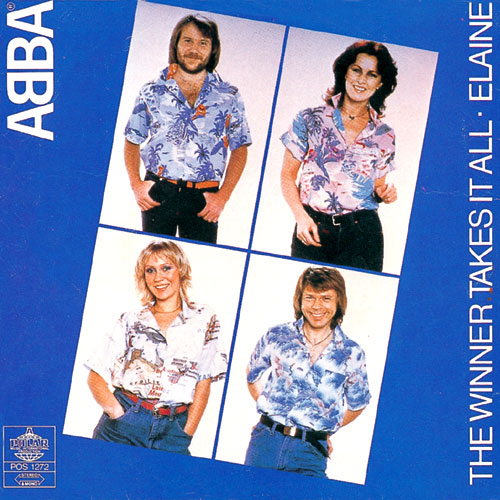
67.
ABBA
“The Winner Takes It All”
[Polar; 1980]
They were responsible for a handful of chart-toppers in the 70s and 80s; their melodies were so indelible even Broadway couldn’t resist them; and they practically invented twee pop, coating even their saddest songs in sweet, catchy harmonies and keyboard riffs that lent themselves more to dancing than to introspection. Yes, ABBA has proven enormously influential on the “guilty pleasure” strain of pop music that’s still championed by bands like Club 8 and artists like Robyn. “The Winner Takes It All” is perhaps their most unabashedly cheesy tune, thanks to lyrics like “The gods may throw the dice/ Their minds as cold as ice” that call to mind the hilarious image of the bedazzled, spandex-clad Swedish troubadours fervently consulting an English rhyming dictionary in order to give their verses the kind of closure only a “sense/fence” couplet can provide. Of course, it’s also a fantastic piano ballad, the torch song as twee dance-pop and a highlight on the band’s underrated 1980 album Super Trouper. True, there’s nothing cool about it, but ABBA was never about “cool.” More than anything else, ABBA seemed to be on a mission to create the stickiest of stuck-in-your-head earworms heard on either side of the Atlantic, and with “The Winner Takes It All,” they certainly succeeded. All together now: “Big or smaaaaallllll/ Takes it aaaalllllllll…”
– Josh Becker
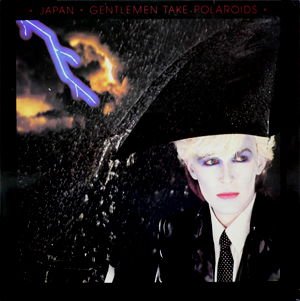
66.
Japan
“My New Career”
[Virgin; 1980]
The song that marks the most obvious links to the concept record Gentlemen Take Polaroids’ loose theme (a young businessman’s limousine gets stuck in the countryside during a thunderstorm — he reflects upon his life) is also its highpoint. A reference to David Bowie’s instrumental track from Low, “My New Career” seems almost like a precursor to Vangelis’ Blade Runner soundtrack and proved that the New Romantic music movement was once interesting. The song also serves as a stark reminder of what a talent was lost with Mick Karn (who died earlier this year), whose bass playing defined the sound of an era.
– John Wohlmacher
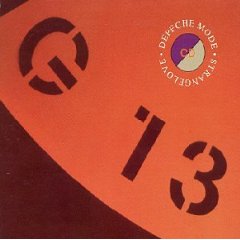
65.
Depeche Mode
“Strangelove”
[Mute; 1987]
There are plenty of modern pop songs that attempt to exude sexuality. Rihanna’s “S&M” is possibly one of the most prominent recent examples of blatant sexuality in lyrical form, and it’s bookended by plenty of songs from pop tarts attempting to present sex to listeners in a pink frilly — and ultimately confusing — packaging. Madonna’s 1985 song “Dress You Up” was possibly the blueprint for this format. In fact, American pop stars have a long history of getting tacky with sexuality, but on the other side of the Atlantic, Brits like to keep it classy. Take Depeche Mode’s “Strangelove” for instance: a dark, velveteen synth track that features the naturally sexy Dave Gahan crooning about the same subject matter as Rihanna’s single, albeit much more enigmatically. “I give in/ to sin/ because you have to make this life livable,” you can hear him smirk before going into his growling pleas for “pain – will you return it? I’ll say it again.” One could say that “Strangelove” is merely subtly sexy from the covert lyrics (compared to Rihanna’s frankness), but that isn’t so — it’s all in the vocal presentation, the chord progressions, the little things Depeche Mode does to keep this hidden world sufficiently sequestered while leaving the keyhole uncovered for the voyeurs. Today’s American pop singers could learn a lot from the sexiness in “Strangelove” — it’s the playbook, as far as I’m concerned.
– Arika Dean
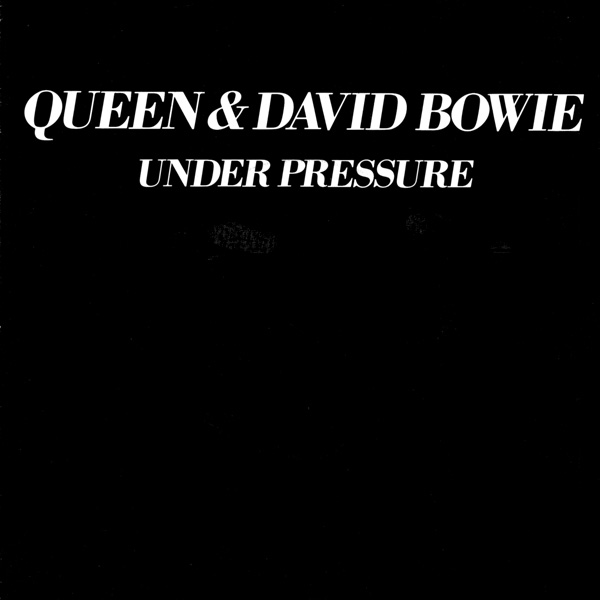
64.
Queen & David Bowie
“Under Pressure”
[EMI / Elektra; 1981]
If you were a kid in the ‘90s, had some brilliant perks: children’s videogames and cartoons seemed to be in their prime, and were almost entirely original. But as far as music was concerned, the ‘90s had the potential to recycle and ruin some amazing songs. “Ice Ice Baby” was always around when I was a kid, constantly circulating mainstream radio stations. It was only ten years later that I discovered that it actually sampled (or stole, depending on your perspective) Queen and David Bowie’s “Under Pressure.” Beginning with one of rock music’s most predominant bass lines, Bowie and Mercury sing in an almost jazz-like scat style, while Brian May temporarily alleviates his distortion pedal for some light and twinkly guitar work. The song implicitly explores the notion of a frightened and stressed society finding no true happiness, but the true release arrives when Freddie Mercury’s operatic voice boons the question of “Why can’t we give love that one more chance?” a question that still resonates with many to this day.
– Aidan Galea
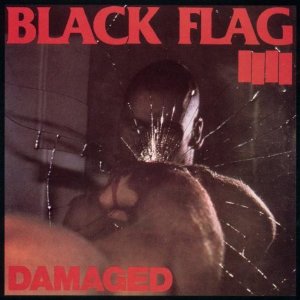
63.
Black Flag
“Rise Above”
[SST; 1981]
“Rise Above” is the opening track on Damaged, Black Flag’s first album and is very much a statement of intent from the opening seconds – not just for this band but for the whole hardcore movement that they would drive. The chorus of “We are tired of your abuse / try to stop us but it’s no use,” is, in a word, anthemic, but there is more to it than the seemingly blatant rebellious aspect. Black Flag and their cohorts did not rebel against society for the sake of rebelling, they observed and they spoke out passionately and smartly on what they didn’t like. Trying to do this over waves of buzz-saw guitars and in a full-throated rasp is probably not the way to negotiate with the people they’re arguing with, but it was most certainly the way to get young and impressionable kids to join the fray. This song is a call for all those who feel empathetic to the cause to “Rise Above” the undesired tenets of society, and even as the movement grew beyond what was expected, this mantra remained at its core.
– Rob Hakimian
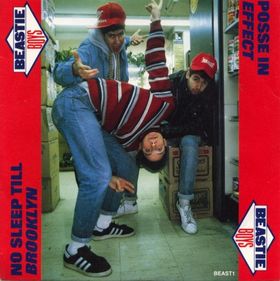
62.
Beastie Boys
“No Sleep Til Brooklyn”
[Def Jam / Columbia; 1986]
If there were a hall of fame for iconic song intros, “No Sleep Til Brooklyn” would be entitled to its own wing. The boisterous communal scream of “no sleep til” followed by the gravelly guitar riffs from Slayer’s Kerry King set the stage for one of the most imminently recognizable tracks of the 1980s. It’s believed that this sensational song, which shows off many of the Beastie Boys’ genre-smashing techniques, is something of a tribute to their tour lifestyle at the time. While their tour lives were littered with groupies and parties, it wasn’t until the group would return back to Brooklyn that they’d finally be able to rest up. The Beasties’ party anthem has gone on to become a popular social anthem for people everywhere, even as the group has matured since the track’s 1987 release.
– Andrew Bailey
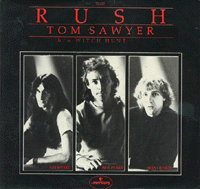
61.
Rush
“Tom Sawyer”
[Mercury; 1981]
It seems a little weird having to talk about a song outside the context of the album framework it’s in, a context I’ve known and talked about for years. However, while listening to it outside that context, I’ve realised how awesome a song “Tom Sawyer” really is. It is the quintessential Rush song; you can find any aspect of Rush’s career, both pre- and post-Moving Pictures, somewhere in “Tom Sawyer,” so it’s no surprise it’s a staple of rock radio despite Rush’s reputation. So, what’s so good about it? For a start, Neil Peart’s drum fills are excellent, elevating the section of the song they’re in to magical levels. Alex Lifeson’s signature arpeggiated riffs are a real treat too, and his lead section is wonderfully schizophrenic. The man almost dances over his fretboard in places. Then there’s that Geddy Lee keyboard line, both hilarious and excellent at the same time. Like I said, it’s quintessential Rush.
– Daniel Griffiths

